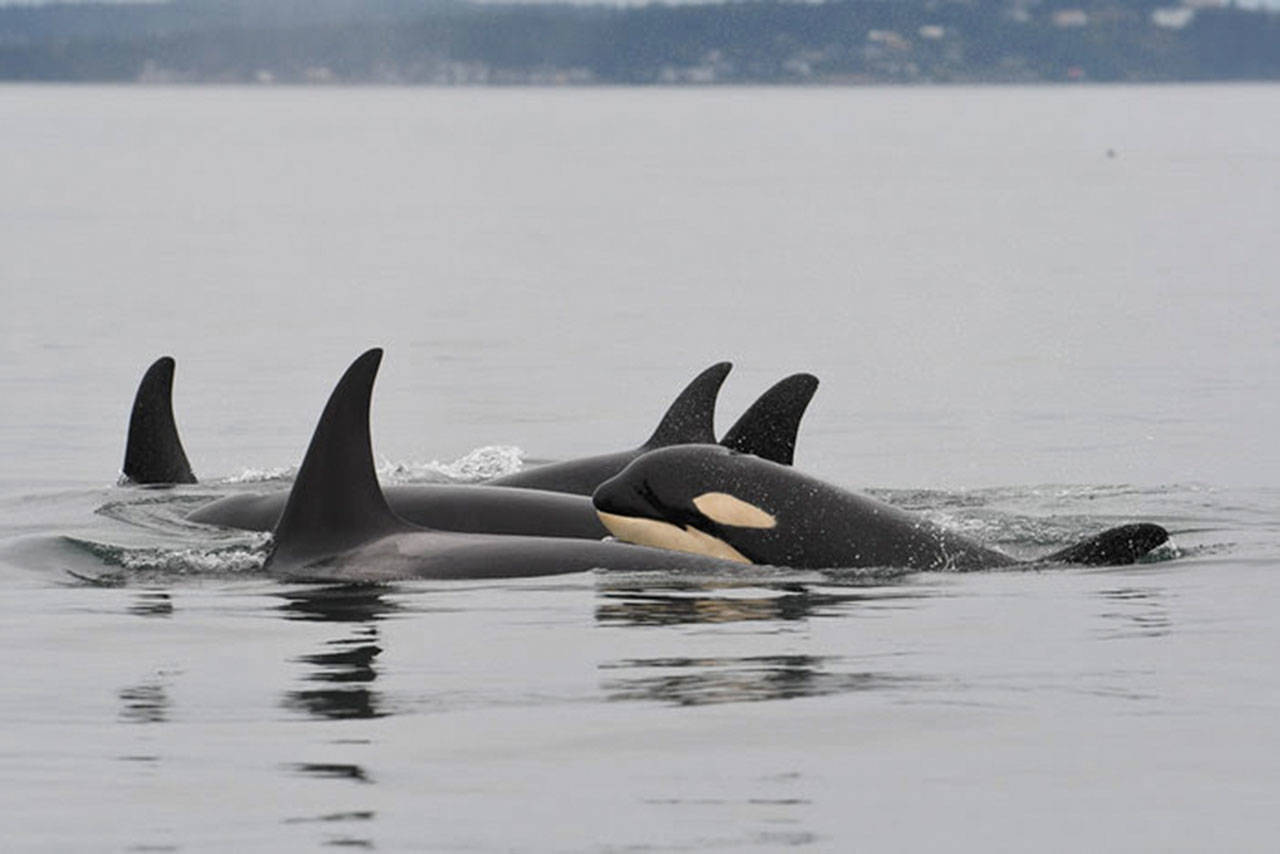forum
library
tutorial
contact

Legal Personhood for Northwest Orcas?
Only Radical Thinking May Save Them
by Bob Kustra
The News Tribune, March 23, 2019
|
the film forum library tutorial contact |

|
Legal Personhood for Northwest Orcas?
by Bob Kustra
|
 The orca is the apex predator of the oceans, a highly social and intelligent being with the second-largest brain in the animal kingdom. Weighing in at five tons, it has no natural enemies, save one: man.
The orca is the apex predator of the oceans, a highly social and intelligent being with the second-largest brain in the animal kingdom. Weighing in at five tons, it has no natural enemies, save one: man.
Evidence of our complicity in the destruction of the orca is unfolding before our eyes in the waters of Puget Sound. Despite well-intentioned efforts to save the killer whale, protect its native waters and improve its food supply, the required solutions rank dead last against powerful commercial, political and cultural forces at work to maintain the status quo.
Scientists classify orcas observed off British Columbia and Washington as "residents," divided into northern and southern groups. The southern residents who spend the summer months in the inland waters of Puget Sound are the ones headed for extinction.
The unspeakable violence humans exacted on these most intelligent creatures defies explanation or justification. Once numbering as many as 250, the number of southern residents is down to 74, now listed as endangered.
How did this happen? In 1970, onlookers were horrified as orcas were rounded up in a bay of Whidbey Island. The whales screamed in distress as they breached the water, trying to avoid nets that would ensnare them and remove them from family and waters that have been their home for at least 5,000 years.
Four were killed as they drowned in the nets. Seven were captured and sold to marine parks, where they lived in despicable conditions.
In the end, 50 orcas were removed from their waters. Today all are dead, except Lolita, a captive of Sea World in Miami for 45 years. She recently lost a battle in federal court to return her to home waters off the Washington coast.
The removal of so many orcas contributed to the decline of the species in Puget Sound waters over the years. Far more subtle but equally devastating conditions are decimating orca numbers today.
The three primary threats: lack of food; vehicle traffic and noise; and pollution and chemical contaminants.
Gov. Jay Inslee convened a task force, and the Washington Legislature is now considering some of its recommendations.
Inslee wants to explore breaching four dams on the lower Snake River to return salmon runs to their historic numbers. According to Sam Wasser, director of the Center for Conservation Biology at the University of Washington: "There is no question the whales are starving ... and the dams are impacting them at a critical place and time..."
Three federal judges in five rulings since 1994 have called for an overhaul of hydropower operations at eight dams on the Columbia and Snake rivers to boost salmon survival, including a serious look at dam removal.
The key to orca survival is the return of chinook salmon numbers to the Sound, and that will not happen until the four lower Snake River dams are breached.
To date, there has been nothing but delay and obfuscation. One has to be a cockeyed optimist to think the dams will be removed in time to save the orcas.
To salvage their food supply, there also must be tougher regulations on the amount of chinook that fishers can remove from Puget Sound waters.
Meanwhile, noise from ocean-going vessels, such as the gigantic freighters served by Seattle and Tacoma ports, interferes with the whales' sophisticated communication system that is critical to their hunt for food.
Pleasure boats and whale-watching vessels add to the proliferation of noise and oil that compromise the daily lives of these creatures. It is not unreasonable to suggest increased licensing and regulation.
Finally, pollution is on the rise in Puget Sound, with PCBs and other contaminants threatening the whales' ability to fight disease.
Cruise ships moored in Seattle may add to the Seattle skyline, but they dump their waste and contribute to orca health risks.
There seems no end to the list of accomplices in the demise of the orca in Puget Sound. The whales themselves seem to be calling out for help.
For 17 days last summer, an orca mom attracted worldwide attention as she carried her dead calf around the Sound with members of her pod helping to keep its body afloat.
We must never give up hope that government agencies acting within the existing legal framework will come to the rescue of southern residents. But the odds are against the orcas as they face powerful commercial interests.
Instead, we must hope for a new day that recognizes and protects the cognitive and emotional complexity of highly intelligent animals.
The time has come for public officials to come to terms with nonhuman rights and to develop and apply a body of law that places animal survival over economic and political powers that sentence animals to extinction.
This is radical thinking, but there are some advocates navigating new legal terrain for animals.
The Nonhuman Rights Project is dedicated to seeking legal personhood and the fundamental right to the bodily liberty of great apes, elephants, dolphins and whales.
The project calls itself the only civil rights organization in the U.S dedicated solely to securing rights for nonhuman animals. It may be the orcas' last and best hope for protection.
learn more on topics covered in the film
see the video
read the script
learn the songs
discussion forum
